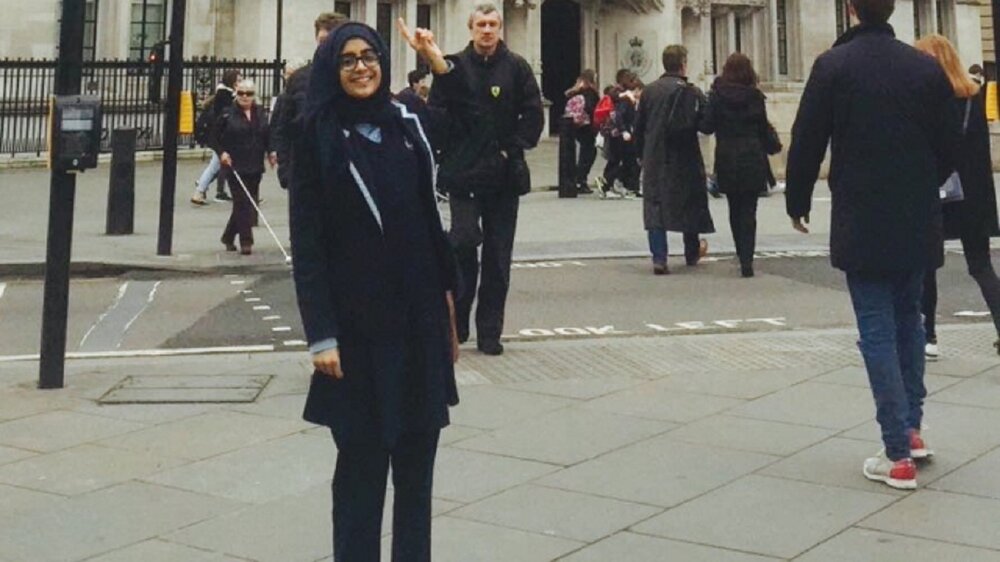Hawzah News Agency –November is Islamophobia Awareness Month and much of the media coverage and social media chatter has focused (rightly so) on the negative experiences of Muslims.
Zesha Saleem the freelance writer and student doctor talks about this issue:
Islamophobia is something we face as a community all year round, in various and devastating ways, and we do need awareness to rid society of it. However, there are also lots of wonderful things about being a Muslim, and I think it’s important to share those too this month. So I’d like to talk about my time at school – an all-girls Muslim school in South Manchester – a place that made me proud of my faith and confident to stand up to Islamophobia.
Faith schools sometimes get a bad rap. I’ve heard assumptions that it prevents students from thinking for themselves, or that it segregates children from the rest of society. In 2018, the chief inspector for Ofsted claimed that some faith schools are resisting British values – while this could be the case for some, it’s wrong to paint all faith schools with the same brush and is definitely not reflective of my experience.
I never felt different to my friends who went to other schools, nor did I feel as if I was “missing out” on anything. For me and my parents, going to a Muslim school was a way for me to balance my faith with a well-rounded education. Like other schools in the area, we had double maths on a Tuesday afternoon, played netball against other schools, and went to Alton Towers at the end of the year, but we also incorporated prayer time and Quran lessons into our timetables and got time off for Eid.
When I left the school and went to Sixth Form at a grammar school around the corner, people had very weird perceptions about me going to a faith school. This wasn’t surprising, given the negative perceptions of faith schools, and of Islam in particular. They assumed that we were hidden away from society, not knowing what was going on in the world. One person thought that my school didn’t even teach us basic subjects because we were an ‘Islamic’ school and another asked if I knew what Christianity was — when the reality was much more different.
We were encouraged to develop our respect and understanding of different faiths and cultures. This was through regular interfaith events – from visiting temples and churches to spending days at local Jewish and Catholic schools. We were also encouraged to keep up with current affairs. In fact, it was organising a mock EU referendum in Year Nine that made me take an interest in politics and journalism.
It wasn’t a place exclusively for Muslims too – many of the best teachers I had were non-Muslim. They respected our beliefs and we respected their differences. It enriched my education and gave me a well-rounded experience because I learnt about other faiths and viewpoints from very close up. For instance, after coming back to school in the new year, my French teacher would recount her Christmas step-by-step which would be very interesting and fun. We would do the same thing by talking about Ramadan and Eid where she would equally learn something new.
It was also a safe environment to have difficult conversations around Islam and the society we live in. We learnt about schemes such as the counter-extremism strategy Prevent – how it works as well as the debates around it – and had lessons on Islamophobia and how to keep ourselves safe while out and about. External organisations would come and tell us about what Islamophobia was and how to deal with it, from knowing who to contact to the support available afterwards (such as Tell Mama UK). We were told to never let Islamophobia define us or what we believed in – it’s something I still keep in mind everyday no matter how intimidating abuse online gets.
I remember when the Manchester Arena attack happened in year 10. It was a shocking experience and had a profound impact on my school as pupils were caught up in it. It was made even more painful when other pupils were then abused on the tram for their religion. Everyone in school was pretty shocked and we all wanted to strongly make the point that terrorism didn’t represent us or the religion that we followed. During that time we took part in a lot of awareness work – we attended an interfaith iftar (the evening meal that breaks our fast during Ramadan) and gave out roses on Chorlton high street as a way of spreading peace. It helped promote understanding between us and the local community which was incredibly important back then.
From that experience and my time at school, I learnt that reaching out to others to clear up misconceptions and differences was key to promoting understanding of my faith. It’s something I still do to this day – from writing about Islam to having honest and frank discussions about my religion with other people. This is one of the reasons why Islamophobia Awareness Month is very important. Contrary to popular belief, it isn’t just about dealing with anti-Muslim hatred and Islamophobia – it’s an important opportunity to be open about Islam, especially in the current climate.
If I didn’t go to my high school, I don’t think I would’ve been that open about my faith, or confident enough to write about it.


Your Comment